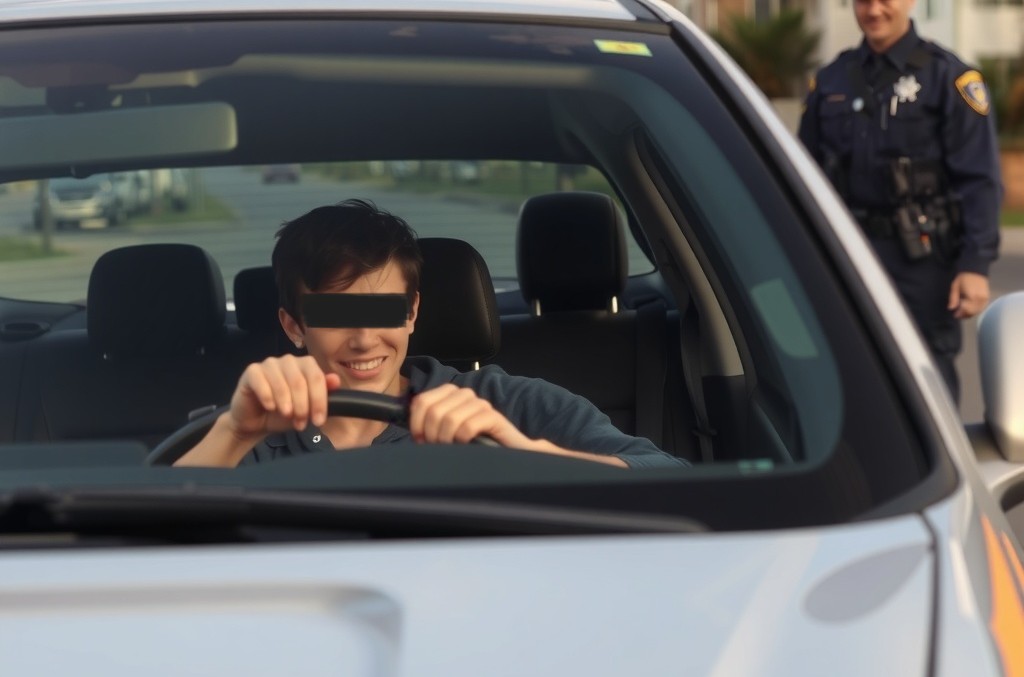Legal Implications for Instruction Permit Drivers
As the saying goes, practice makes perfect. Instruction permits, also known as learner’s permits, allow new drivers to get behind-the-wheel experience.
Most expect to master the basics and receive their driver’s license. Yet, every year, unexpected motor vehicle accidents destroy this hope. Those involved may even face property damage, serious injuries, and death.
What happens if you crash while driving on an instruction permit? At Autoaccident.com, our experienced lawyers know how essential it is to know the legal implications. Your future is at stake.
Don’t wait until devastating legal issues arise to react. Learn about your rights and the best options to defend them now. You can do so for free during a free consultation with our legal team.

Understanding the Legal Responsibilities of New Drivers
The process of obtaining a driver’s license starts with getting your learner’s permit. Generally, you must be a certain age and meet specific requirements.
The steps may vary depending on your location. For example, in California, you must:
- Be at least 15.5 years old
- Complete the California Driver’s License or ID Card Application (signed by a parent or guardian and accompanied by a Certificate of Completion or Enrollment in Driver Education classes if you are under 18 years old)
- Visit a local Department of Motor Vehicles (DMV), present proof of identity, pass a vision exam and knowledge test, take a photo, and pay the application fee
One of the objectives of instruction permits and special “provisional” driver’s licenses (DL) is to reduce the thousands of motor vehicle collisions that occur every year. Common restrictions are:
- Your training instructor must validate your permit with a signature
- You must practice with a licensed driver who can take control of the wheel if needed (e.g., a parent, certified driving instructor, or another adult aged 25 or older)
- You can only drive after 5 am and before 11 pm
- You cannot give a ride to anyone under 20 years old unless accompanied by a qualified adult
- You cannot use any electronic communication, including hands-free devices and cellphones, unless calling for emergency services or on private property while driving
Following these rules helps keep everyone safe. Of course, accidents can still occur. When they do, who is liable?
Addressing the Liability of Parents and Guardians
Parents and guardians can be held responsible if a teen with a driving permit causes an accident. In many states, when a parent signs the permit application, he or she also agrees to assume financial responsibility for any damage the teen in their care may cause. Therefore, the parent might have to pay for injuries or repairs after a crash.
A lawyer can help you understand exceptions
An insurance company or the opposing counsel of a personal injury case is unlikely to reveal the whole truth about car accident liability. They may suggest that if you broke an instruction permit rule, it is your fault that an accident occurred.
At Autoaccident.com, we understand that complex personal injury law and driving regulations are not simple. At times, you may not have access to a reasonable means of transportation.
The law acknowledges that you might need to drive under circumstances like those listed below:
- The parent or another immediate family member is sick or unable to drive, and the new driver must provide transport
- The minor’s school or job authorizes or requires you to attend activities that may extend beyond the set driving hours
- The learner’s permit holder is an emancipated minor
If a permit driver is 18 or older, parents are usually not legally responsible unless the person has signed something accepting financial liability. Older teens and adults might have their own insurance.
An attorney can gather evidence of shared liability
In some accidents, more than one person shares fault. This comparative negligence could mean that the amount of money each responsible party must pay is reduced based on their share of the fault.
Cases vary greatly and by location, so it is best to consult a law firm to understand the restrictions that apply to your specific case.
Avoiding Costly Mistakes After a Crash
After a crash involving an instruction permit driver, unintentional missteps can lead to significant legal and financial problems. Admitting fault, failing to gather evidence, or giving statements to insurance companies can affect your ability to recover damages or defend against claims.
Many families assume that insurance will handle matters. Yet, insurance companies aiming to minimize payouts and deny coverage are not on your side.
Protect yourself and your family. Contact Autoaccident.com today at (800) 404-5400 to schedule a free, personalized case review and get the support you need.